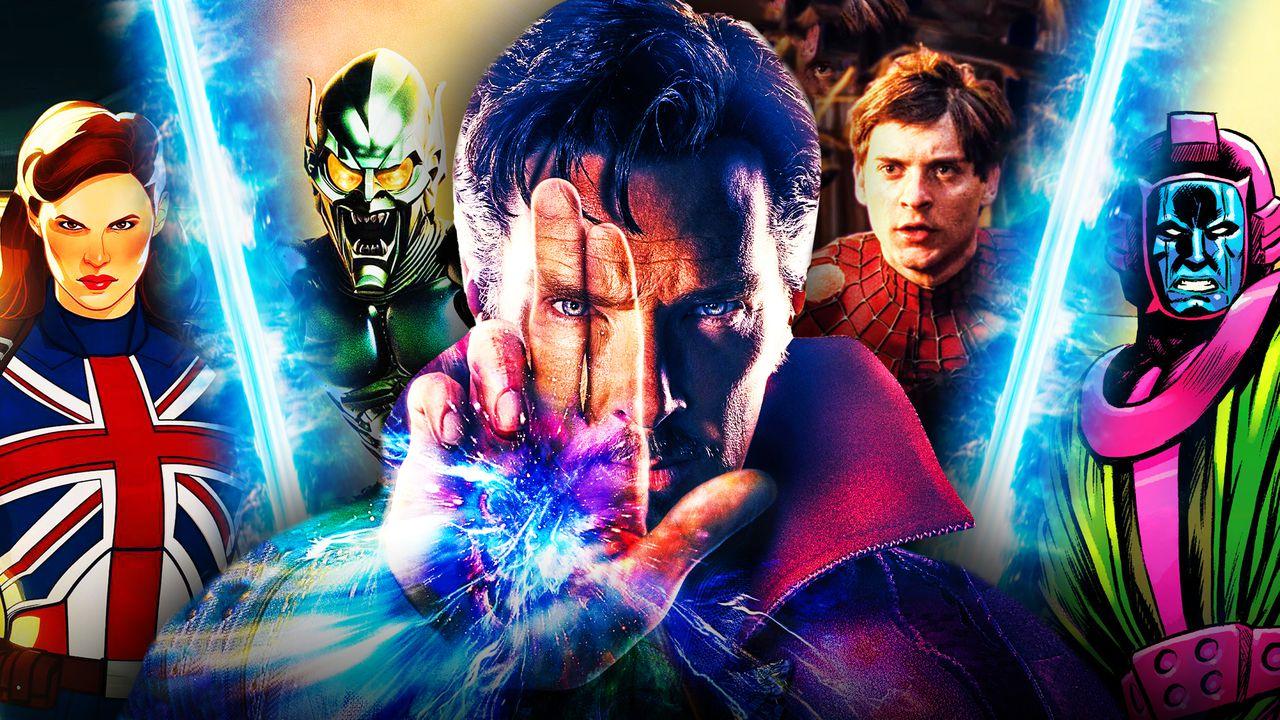
After an explosive and thrilling Infinity Saga, the Marvel Cinematic Universe is moving on to a new chapter as it deals with the vast Multiverse. The concept has been at the forefront of several Phase 4 projects already, such as Loki and Spider-Man: No Way Home. Doctor Strange in the Multiverse of Madness is the next project to bring in alternate realities, with the film being confirmed to travel across the Multiverse.
As the MCU explores this new concept, it also entails storytelling challenges along the way. Avengers: Infinity War and Endgame director Joe Russo expressed his concern about the rising trend in character revivals via Multiverse storytelling, admitting that "too much of one thing is a bad thing."
No Way Home's ending already introduced potential problems tied to the Multiverse. After all, returning cured villains into their own universe could open up a plethora of alternate timelines that change the course of the respective reality's history.
Now, the Doctor Strange sequel's head scribe has chimed in on the subject.
The MCU and its Multiverse

Doctor Strange in the Multiverse of Madness head writer Michael Waldron sat down with SFX Magazine, via Gamesradar, to talk about the challenges of introducing alternate realities into MCU movies and shows.
Waldron first explained how the Multiverse could be both an "opportunity" and a "trap" in on-screen storytelling, saying that the problem is that it reduces the stakes "if you don't make it personal as you go bigger and wider:"
"The danger is you can expand your scope too wide, and you can actually reduce the stakes if you don’t make it personal as you go bigger and wider. But the opportunity in the multiverse is to have characters confront literal ‘What ifs?’ and alternate versions of themselves and perhaps others in their lives. It’s an interesting way to hold up a mirror to characters."
The Loki scribe also shared that the Multiverse isn't "just a MacGuffin," pointing out that it should shape the "emotional heart" of the story:
"In every way, it shapes the emotional heart of the story. It has to. The multiverse isn’t just a MacGuffin where we’re like, 'Okay, this is just a kitschy thing that we’re playing with in this movie.’ If you’re faced with alternate realities and with alternate versions of yourself that has to become the emotional heart, exploring who you might be if you were a different version of yourself, if you made other choices, the right choices or the wrong choices. It’s complex stuff, emotionally, and that’s exactly why it’s so thrilling and so great for a cast as dramatically talented as this one."
The Challenges of Incorporating Alternate Realities
Michael Waldron's latest comments should serve as a guide for current and future Marvel writers who will be tackling the Multiverse in upcoming projects.
The head writer's "trap" remark is clearly alluding to the fact that if a character dies, a Variant of that hero or villain could be the easy replacement, thus reducing the stakes presented in the narrative.
However, on the opportunity side, it presents a lot of ways to expand the franchise. As has already been shown, the Multiverse can be used to reuse classic characters from past projects while still introducing new ones such as America Chavez.
From the get-go, utilizing the Multiverse is tricky in a story sense, mainly because there is a need to establish rules so that a smooth transition between related projects will occur. Interestingly, Marvel Studios president Kevin Feige has already unveiled that the studio's higher-ups and creatives had a meeting on the Multiverse and its rules, indicating that the interconnected nature is still there.
It is unknown how the MCU's use of the Multiverse will pan out in the coming years. But Marvel Studios' dedication to crafting a narrative that considers the stakes involved, combined with its writers' awareness of potential problems, should serve as a good place to begin with.
Doctor Strange in the Multiverse of Madness is set to premiere in theaters on May 6.












